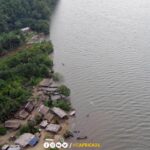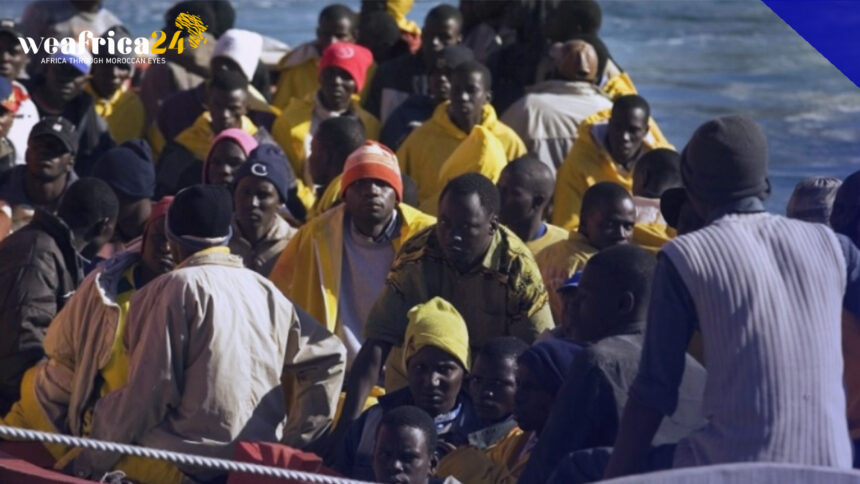The persistent issue of irregular migration in Africa continues to draw international attention, as nations grapple with the multifaceted challenges posed by this phenomenon. The interception of a distressed inflatable boat by a unit of the Moroccan Royal Navy, carrying 67 candidates for irregular migration including a woman and three minors, serves as a stark reminder of the complexities inherent in this ongoing struggle.
A Continent in Flux
Africa’s geographical expanse and diverse socio-economic conditions have given rise to a complex migration landscape. Economic disparities, political instability, conflict, lack of opportunities, and environmental factors contribute to the motivation behind irregular migration. While some individuals seek better economic prospects, others flee dire circumstances in pursuit of safety and security.
The Perilous Journey
The intercepted inflatable boat is but one symbol of the perilous journey many irregular migrants undertake. These voyages are often marred by treacherous conditions, human rights abuses, and exploitation by human traffickers. The involvement of women and minors, as seen in this recent incident, highlights the vulnerability of these groups and underscores the urgent need for protective measures.
Humanitarian and Security Implications
Irregular migration has far-reaching implications, both humanitarian and security-related. Migrants are exposed to physical risks during their journeys, facing potential dangers from rough seas, extreme weather conditions, and overcrowded vessels. Additionally, the phenomenon contributes to strained resources and services in destination countries, leading to socio-economic challenges and potential friction between host communities and migrants.
Collaborative Solutions
Addressing irregular migration necessitates a comprehensive, collaborative approach involving source, transit, and destination countries, as well as international organizations. Efforts should focus on enhancing economic opportunities, strengthening governance and conflict resolution mechanisms, and improving living conditions in source countries. Equally important is the need to combat human trafficking networks and provide protection to vulnerable migrants, particularly women, and minors.
Awareness and Education
Raising awareness about the dangers of irregular migration and promoting education about legal migration pathways are crucial components of any comprehensive strategy. Empowering communities with accurate information can dissuade potential migrants from embarking on perilous journeys and equip them with the knowledge to make informed decisions.
The interception of the distressed inflatable boat by the Moroccan Royal Navy offers a poignant glimpse into the intricate web of irregular migration in Africa. As nations grapple with the challenges posed by this phenomenon, a unified and collaborative approach is essential. By addressing the root causes, providing protection to vulnerable migrants, and promoting education and awareness, Africa can move closer to a future where irregular migration becomes an exception rather than the norm, ultimately fostering a more stable, secure, and prosperous continent for all.







